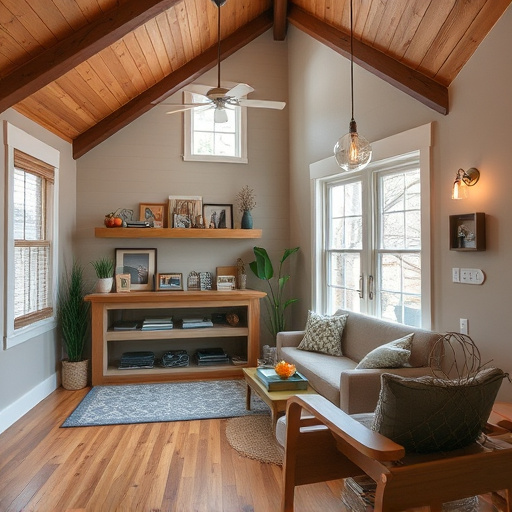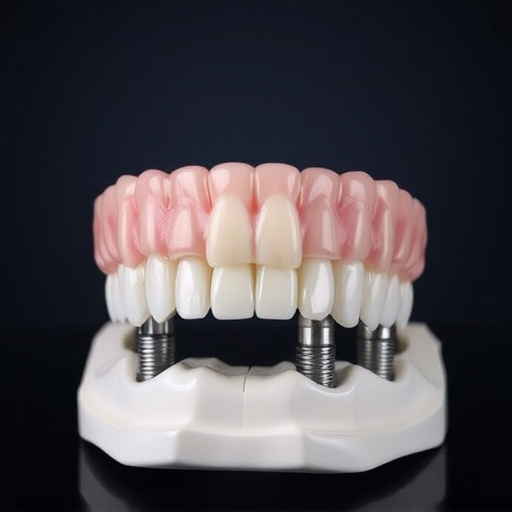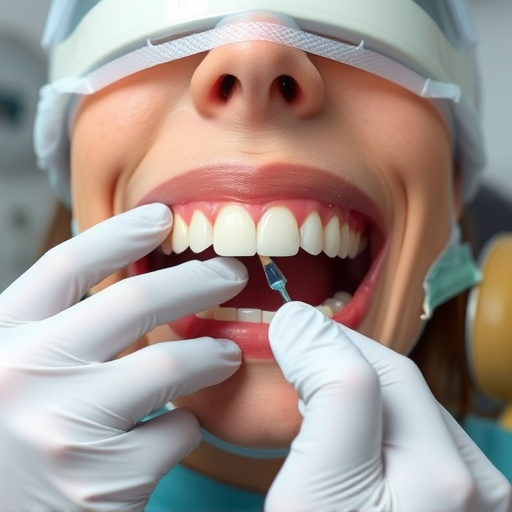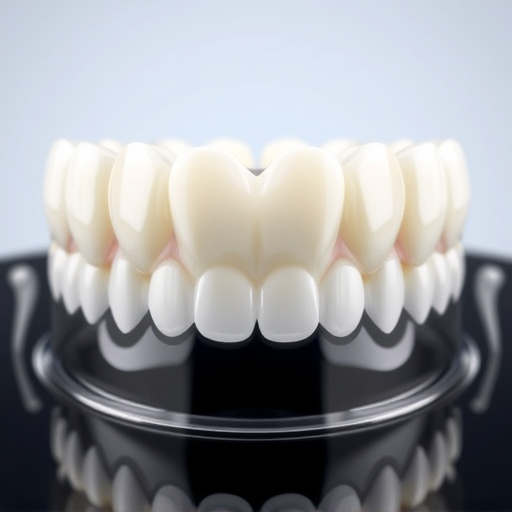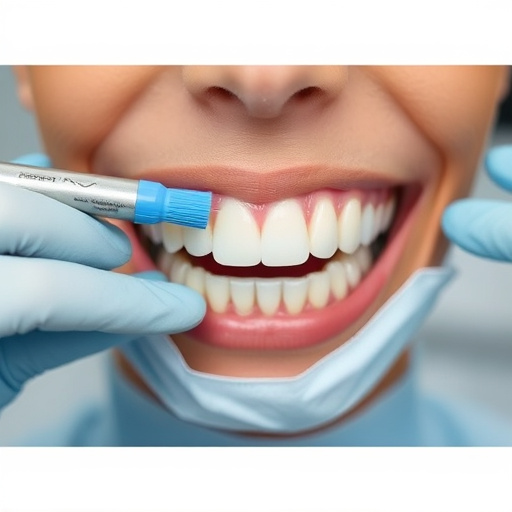Handicap accessible dental clinics are vital for inclusive healthcare, addressing physical limitations and medical complexities that hinder access to traditional dental services. These clinics provide a safe, welcoming environment with universal design features like wide entryways and low-height counters, along with staff trained in empathetic care and specialized treatments. Offering a range of services from basic check-ups to complex procedures ensures comprehensive oral health for diverse needs, fostering trust and regular check-ups, and positively impacting overall systemic health.
In today’s inclusive society, ensuring every individual receives quality dental care is paramount. This is especially crucial for those with disabilities who often face unique challenges navigating healthcare services. Understanding the need for handicap accessible dental clinics goes beyond basic convenience; it’s about breaking down barriers and fostering an environment where all patients can access essential oral health services. This article explores why these clinics are vital, their design principles, and the profound impact they have on patient care and experiences.
- Understanding the Need for Handicap Accessible Dental Clinics
- Designing and Creating an Inclusive Dental Environment
- The Impact of Handicap Accessible Dental Services on Patient Care and Experience
Understanding the Need for Handicap Accessible Dental Clinics

In today’s world, ensuring accessibility for all individuals, regardless of their physical abilities or health conditions, is more than just a moral imperative; it’s a fundamental aspect of inclusive healthcare. This need is particularly pronounced in dental care, where many common procedures can be intimidating or challenging for patients with disabilities. From simple tasks like teeth cleaning to complex treatments such as wisdom tooth removal, handicap accessible dental clinics play a vital role in ensuring everyone has equal access to oral health services.
Many individuals with special needs face barriers when it comes to accessing traditional dental care. These might include physical limitations that require specific accommodations, such as wheelchair accessibility and specialized equipment. Moreover, certain medical conditions can make dental procedures more complicated. For instance, patients with neurological disorders or severe allergies need environments that cater to their unique requirements. Handicap accessible dental clinics are designed to accommodate these diverse needs, offering a welcoming and safe space for all patients, whether they require dental bonding, a routine check-up, or specialized care like wisdom tooth removal.
Designing and Creating an Inclusive Dental Environment
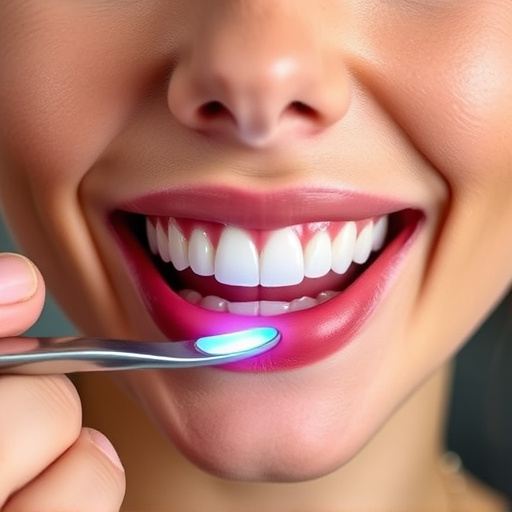
Creating an inclusive dental environment is a multifaceted process that begins with understanding and catering to diverse needs. Handicap accessible dental clinics must be designed with every patient in mind, ensuring seamless access for those with various physical abilities. This includes implementing wide entryways, ramp access, and low-height counters to accommodate wheelchairs and other mobility aids. The use of universal design principles, such as contrasting colors and raised markings, can further enhance navigation for patients with visual or sensory impairments.
An inclusive space extends beyond physical architecture. It involves training staff to interact with all patients empathetically and providing specialized services like emergency dental care tailored to unique needs. This might include offering children’s dentistry services for young patients, especially those with special requirements, ensuring comfort during procedures. Even routine tasks like chair adjustments and numbing can be adapted to suit different conditions, making every patient feel welcomed and valued. Additionally, having a range of options for dental treatments, from basic check-ups to complex procedures like dental crowns, demonstrates comprehensive care tailored to various health scenarios.
The Impact of Handicap Accessible Dental Services on Patient Care and Experience
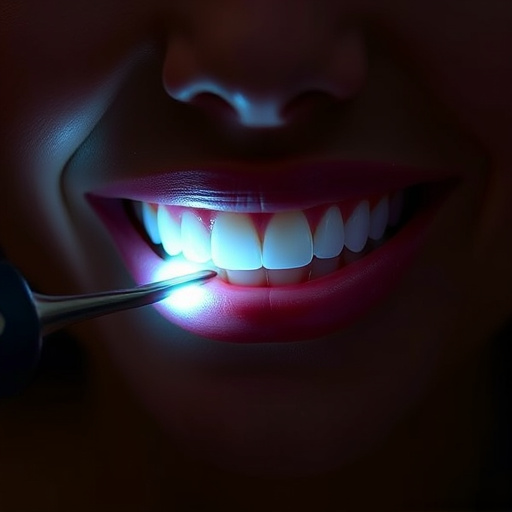
Having handicap accessible dental services significantly enhances patient care and experience for individuals with diverse physical needs. When a dental clinic is designed to cater to patients using wheelchairs, has raised fixtures, and offers assistance devices like wheelchair ramps and specialized chairs, it instantly creates an inclusive environment. This accessibility ensures that every patient can receive the same level of attention and quality care without facing physical barriers.
Moreover, these services extend beyond basic teeth cleaning and dental fillings. They encompass a range of procedures including complex dental crowns and other specialized treatments. By providing such comprehensive care in an accessible setting, dental clinics welcome patients with various conditions, fostering trust and encouraging regular check-ups. This proactive approach not only improves overall oral health but also has positive implications for the patient’s general well-being, as oral health is intrinsically linked to overall systemic health.
Handicap accessible dental clinics are not just a luxury, but a necessity in ensuring equitable access to oral healthcare. By designing inclusive environments and offering services tailored to diverse needs, these clinics significantly enhance patient care and experience. The impact extends beyond physical comfort, fostering a sense of dignity, respect, and community for individuals with various disabilities. As we move forward, prioritizing handicap accessible dental services is crucial in creating a more inclusive society where everyone can smile with confidence.



